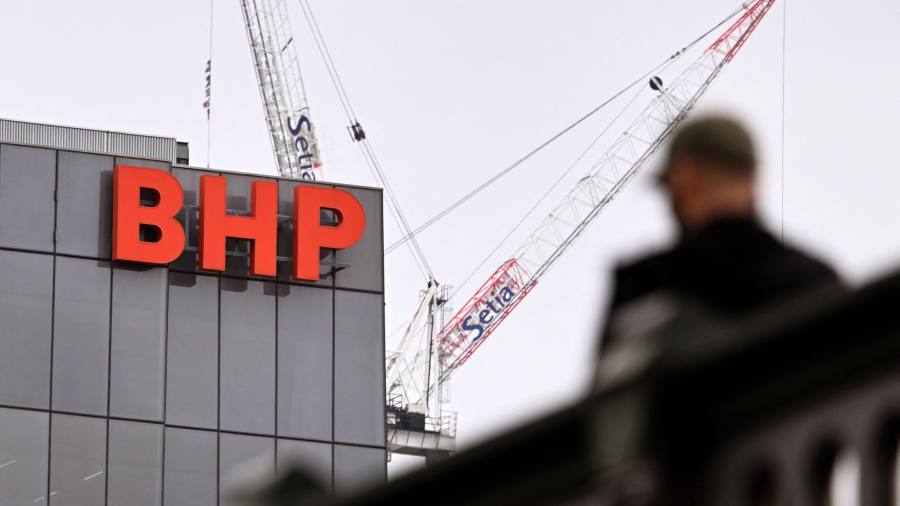The world’s largest mining company BHP said it underpaid almost 30,000 workers over a 13-year period, in an error that will cost at least $280mn (A$430mn) to redress.
BHP said it had incorrectly deducted leave from thousands of staff that worked on a public holiday since 2010, when a change to employment laws was implemented but not integrated into its payroll systems.
The statement from the company comes during a debate in Australia over raising wages as inflation goes up. The country’s central bank warned last week that rising salaries would fuel inflation without a corresponding increase in productivity.
It is another reputational blow to Australia’s mining sector, which is working to overhaul its culture following reports on sexual assaults and bullying as well as the destruction of indigenous sites by Rio Tinto at Juukan Gorge.
Last week, BHP warned that proposed changes by the Labor government to industrial laws surrounding contractor pay would cost it A$1.3bn and threaten jobs.
The financial hit for BHP, which is valued at A$212bn, could rise further as it reviews the pay problem and as it integrates its near-A$10bn acquisition of South Australian rival Oz Minerals. It completed the deal this month but said the leave deduction issue had affected Oz as well.
“This is not good enough and falls short of the standards we expect at BHP. We are working to rectify and remediate these issues, with interest, as quickly as possible,” said Geraldine Slattery, BHP’s Australia president.
BHP’s mistake happened due to a change to laws in 2010 stipulating that workers should be compensated for working on a public holiday.
The company instigated a review following a court ruling in March in favour of the mining union that said that employers had been incorrectly deducting leave.
BHP’s admission that it had underpaid tens of thousands of staff will be one of the largest cases of wage redemption in Australia’s history. Woolworths, an Australian grocery chain, agreed in 2021 to raise its back payments for underpaid staff to A$420mn.
Read the full article here




